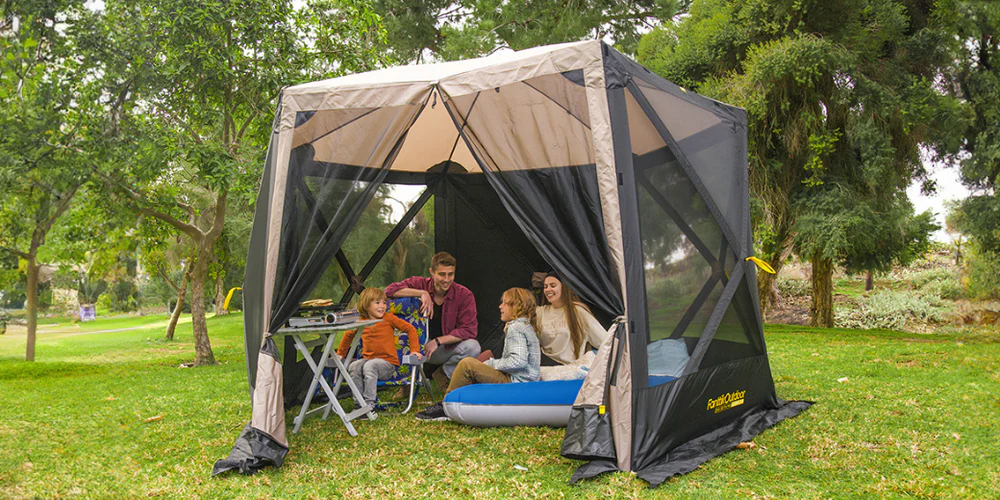Unlock the Secrets to Choosing the Perfect Windproof Canopy for Your Outdoor Adventures!
When it comes to enjoying the great outdoors, having a reliable windproof canopy can make all the difference. Whether you’re hosting a picnic, setting up a booth at a local market, or camping with friends, strong winds can be a significant challenge. A good windproof canopy not only provides shelter from the elements but also enhances your overall outdoor experience by creating a comfortable space to relax and enjoy. Understanding the importance of these canopies is crucial, as they protect you from unpredictable weather changes, allowing you to enjoy your time outdoors without worry.

Understanding Windproof Canopies
Windproof canopies are specifically designed to withstand strong winds, setting them apart from standard canopies. These structures typically feature reinforced seams, sturdy frames, and specially designed fabric that resists tearing and flapping in the wind. Common materials used in windproof canopies include high-denier polyester and ripstop nylon, which offer both durability and light weight. Additionally, design elements such as slanted roofs reduce wind resistance while strategically placed vents allow air to flow through, minimizing the risk of the canopy being lifted or damaged. Knowing these features can help you select a canopy that not only stands up to the elements but also provides a secure shelter for your outdoor adventures.
Key Factors to Consider When Choosing a Windproof Canopy
When selecting a windproof canopy, several key factors can influence its effectiveness in windy conditions. First, consider the size of the canopy; larger canopies may offer more shelter but can also catch more wind, making them harder to manage. Weight and portability are also essential; a heavier canopy can withstand winds better, but if it's too cumbersome to transport, it may not be practical for your needs. Additionally, ease of setup cannot be overlooked; canopies that are quick and simple to set up are ideal for impromptu gatherings or changing weather situations. Lastly, think about the intended use—whether you need a canopy for commercial purposes or casual outings—as this will dictate the features and specifications that matter most to you.
Material and Durability
The materials used in windproof canopies are vital for their performance and longevity. Fabrics like polyester and nylon are popular due to their excellent strength-to-weight ratio, while options like canvas provide additional durability. Look for canopies with UV-resistant coatings to protect against sun damage, and consider those with waterproof features to ensure you stay dry during unexpected rain. Investing in a canopy made from high-quality materials can significantly enhance its durability and ability to withstand the rigors of outdoor use, ensuring that your investment lasts through many adventures.
Effective Usage Techniques
Setting up a windproof canopy effectively can be the key to its success in windy conditions. Begin by choosing an appropriate location; ideally, find a spot that is shielded from the wind, such as near a hill or large trees. When positioning the canopy, ensure that it is anchored securely to the ground. Use stakes or weights to hold down the corners, and consider adding additional tie-downs to prevent lifting. A personal experience from a camping trip with friends highlighted the importance of this; after a sudden gust lifted our canopy, we learned the hard way to secure it properly. Regularly check the tension of the fabric and adjust as necessary, ensuring that it remains taut without being overstretched.
Maintenance Tips for Longevity
To keep your windproof canopy in top condition, regular maintenance is essential. After each use, clean the fabric with mild soap and water to remove dirt and debris, and ensure it is completely dry before storing it to prevent mold and mildew. Inspect the canopy for any tears or damages, especially in high-stress areas like seams and corners, and repair them promptly to extend the lifespan of the canopy. When storing, keep the canopy in a cool, dry place, preferably in a protective bag to shield it from dust and moisture. These simple practices can help ensure that your canopy remains a reliable source of shelter for many outdoor adventures to come.
Final Thoughts on Choosing the Right Windproof Canopy
In conclusion, choosing the right windproof canopy can drastically enhance your outdoor experiences by providing reliable protection from the elements. By understanding the features that differentiate windproof canopies from regular ones and considering key factors such as size, material, and ease of setup, you can make an informed decision. Additionally, employing effective setup techniques and maintaining your canopy will ensure its longevity and performance. Embrace your outdoor adventures with confidence, knowing that with the right windproof canopy, you can enjoy the beauty of nature without the worry of the wind.







